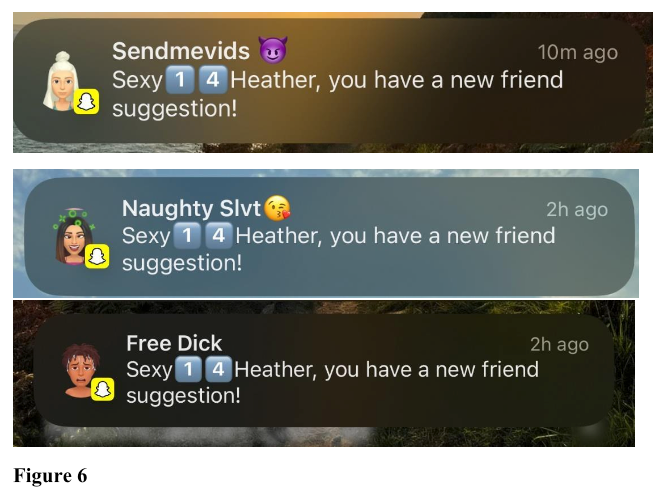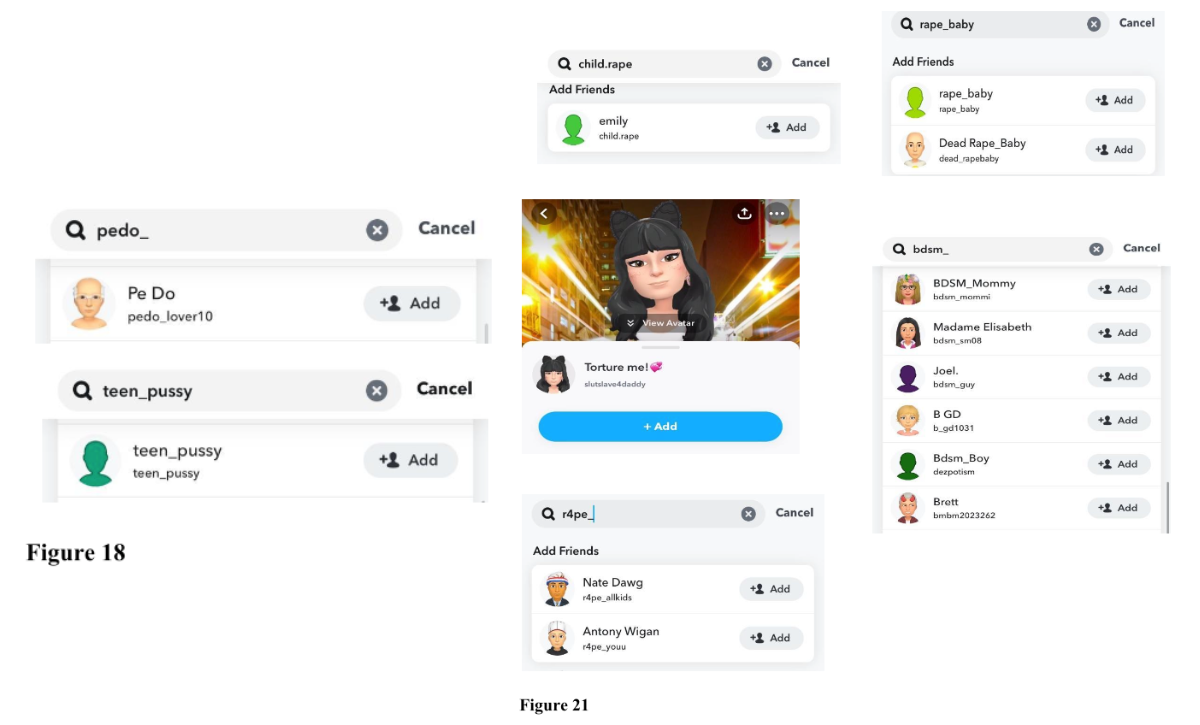Snapchat Is A “Breeding Ground” For Child Predators, According To New Mexico Lawsuit
Gabby Miller / Sep 5, 2024
Snapchat logo and icon displayed on smartphone. Source.
On Sept. 5, 2024, New Mexico Attorney General Raúl Torrez filed suit against Snap Inc., alleging the design and implementation of certain features on its social media platform make it one of the “most pernicious purveyors of child sexual abuse material (“CSAM”) and harm-inducing features on children’s electronic devices.”
The suit (State of New Mexico v. Snap Inc.) alleges that Snapchat, a popular social media app that allows users to exchange photos and videos, was designed to attract and addict young people; openly fosters and promotes “illicit sexual material involving children”; and facilitates “sextortion” and the trafficking of children, drugs, and guns. This, combined with the company willfully misleading the public on the safety and design of its platform, amounts to a public nuisance in violation of the state’s Unfair Practices Act, according to the 164-page filing.
The alleged harms laid out in the case include:
- Implementing design features and policy choices that fail to ascertain or apply the actual age of users
- Preventing effective parental controls and reporting mechanisms
- Permitting predators to identify, contact, groom, and extort children and to develop CSAM through these contacts
- Designing algorithms and features that connect child sex predators to children and allow predators to find target victims
- Creating a virtual market for marketing and selling illegal drugs and guns to children
- Failing to warn and affirmatively misleading parents and children about the presence of sex trafficking, sexual exploitation content, and drug and gun sales on the platform
- Failing to report CSAM
- Using features like ephemeral content, such as “streaks,” that reward compulsive use of Snapchat
- Aggressively sending notifications of new content to users
The suit maps out the many ways that Snapchat has allegedly become a “breeding ground” for child predators, as demonstrated by an undercover investigation conducted by New Mexico’s Department of Justice. The office first set up a decoy account for a 14-year-old girl with the username Sexy14Heather (“Heather”), initially listing her sign-up age as 18, but later modifying it to a minor’s account. Within a day of merely searching for other 15-year-olds on the app, and without adding any other users, Heather received a friend request from Enzo (Nud15Ans), who swiftly requested they exchange anonymous messages off Snapchat through a ngl.link. After this single exchange, and despite her account being private, Snapchat suggested nearly one hundred other users to Heather, including other adults who sought to exchange sexually explicit content. An additional search that suggested Heather was looking for other users under 18 led to continued recommendations for explicit accounts with usernames like “naughtypics,” “gayhorny13yox,” and “teentradevirgin.” And despite never directly engaging with them, the decoy account received push notifications that referenced even more explicit content.

Figure 6 of the State of New Mexico v. Snap Inc. suit.
Images of erect penises and selfies of adult men landed in Sexy14Heather’s Snap messages once investigators began directly engaging with these explicit accounts in ways that made clear Heather was underage. “The ease with which accounts representing minors were located and targeted by malicious users highlights the manner in which Snap enables sexual exploitation and abuse on its platforms,” the filing states.
Further, investigators were able to use Snapchat’s search feature to access specific kinds of sexually explicit content. A search for genitalia and children returned accounts promoting pedophilia. Searches for “pizza sellers” (a proxy for child porn), “trade young,” and “trade girls” provided Heather with dozens of users selling or seeking child pornography. Snapchat also permitted searches for “child rape, necrophilia, bestiality, and a range of other fetishes.”

Figure 18 and Figure 21 of the State of New Mexico v. Snap Inc. suit.
Investigators additionally turned to the deep web to learn more about the spread and scale of CSAM that originated on Snapchat. In a search of the unindexed deep web, investigators identified more than 10,000 records in the past year related to Snap and CSAM. This included information on minors under 13 years old being sexually assaulted.
The suit further notes how Snapchat is the preferred app by criminals in financial “sextortion” schemes, where predators solicit explicit images of users and then extort senders into providing money to avoid distribution of these images to friends and family – a practice that has led numerous children to suicide. Snap is not only the most frequently used app to coerce victims into sending these sexually explicit images, according to the filing, but it also allows attackers to use “widely circulated” scripts that “easily bypass Snap’s inadequate safety measures.” Snap has failed to proactively detect the use of these scripts in order to ban known cybercriminals.
This evidence “represents only a sample of the child sexual exploitation material permitted, developed, recommended, and proliferated by Snapchat – exposing the more than half of US teenagers who use Snapchat not only into seeing, but being manipulated into providing, sexually explicit materials or being recommended or introduced to child predators,” the suit said. The state is seeking civil penalties of up to $5,000 for each violation and to permanently enjoin Snap and its employees from engaging in the alleged public nuisance the company has caused.
Thursday’s filing against Snap adopts the same novel legal strategy that Attorney General Torrez is using against Meta. In December 2023, his office filed a 225-page lawsuit against Meta and its CEO, Mark Zuckerberg, for allegedly failing to protect children from sexual abuse, online solicitation, and human trafficking, also in violation of New Mexico’s Unfair Practices Act. That suit argues that Instagram and Facebook’s recommendation algorithms helped child predators connect with minor users and exchange CSAM. This, according to the suit, amounts to a “public nuisance” by “creating and maintaining a condition that is harmful to the health and safety of thousands of New Mexico residents and interferes with the enjoyment of life.”
Meta has since sought to dismiss the case, but the judge denied the motion in May, allowing it to proceed. Attorney General Torrez characterized the decision as the end of an era where platforms evade legal liability for their role in child abuse online. “All social media platforms that harm their users should be on notice,” he said in a press release on the ruling. (Torrez also told Tech Policy Press during an August podcast appearance that the tech industry can expect similar criminal investigations to continue.)
While Attorney General Torrez seeks to lead the way in holding social media companies accountable for facilitating child predation and “sextortion” on their platforms, other attorneys general offices across the country are also zeroing in on platforms for their “addictive” design features and their negative impacts on young users. Last October, a bipartisan coalition of 42 state attorneys general filed nearly a dozen lawsuits against Meta, alleging the company knowingly designed and deployed harmful features across its social media platforms that purposefully addict children and teens and, according to some of the filings, did so in violation of the Children's Online Privacy Protection Act (COPPA). (New Mexico did not sign onto these suits against Meta.)
There’s also significant concern in Washington around children and teens’ safety online. Earlier this year, lawmakers dragged executives from Discord, Meta, Snap, TikTok, and X before the Senate Judiciary Committee to discuss the “online child sexual exploitation crisis.” There, Meta’s Mark Zuckerberg and TikTok’s Shou Chew received, by far, the toughest lines of questioning from Senators. A particularly headline-grabbing moment from the hearing came when, at the urging of Sen. Josh Hawley (R-MO), Zuckerberg turned to the rows of “victim families” to offer his condolences and pledged that the platform would “continue its industry-leading efforts” to protect children online. Only one question, however, was reserved exclusively for Snap CEO Evan Spiegel on the topic of drug trafficking on its app. Spiegel apologized to the parents of children who accessed illegal drugs through Snapchat, some of whom have died from overdose, for Snap’s inability to “prevent these tragedies.”
Related Reading:
Authors
